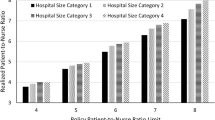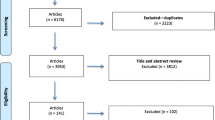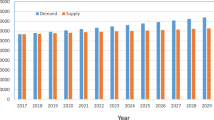Summary
Physician payment system (PPS) is a principal incentive system to motivate doctors to provide excellent care for patients. During the past decade, physician remuneration in China has not been in proportional to physician’s average work load and massive responsibilities. This paper reviewed the constitution of the PPS in China, and further discussed the problems and issues to be addressed with respect to pay for performance. Our study indicated that the lower basic salary and bonus distribution tied to “profits” was the major contributor to the physician’s profit-driven incentive and the potential cause for the speedy growth of health expenditures. We recommend that government funding to hospitals should be increased to fully cover physicians’ basic salary, a flexible human resource and talent management mechanism needs to be established that severs personal interest between physicians and hospitals, and modern performance assessment and multiplexed payment systems should be piloted to encourage physicians to get the more legitimate compensation.
Similar content being viewed by others
References
Lesser CS, Fineberg HV, Cassel CK. Analysis and commentary physician payment reform: principles that should shape it. Health Affairs, 2010,29(5):948–952
Yip WC, Hsiao W, Meng Q, et al. Realignment of incentives for health-care providers in China. Lancet, 2010,375(9720):1120–1130
Jacobson M, Earle CC, Price M, et al. How medicare’s payment cuts for cancer chemotherapy drugs changed patterns of treatment. Health Affairs, 2010,29(7):1391–1399
Shahinian VB, Kuo YF, Glbert SM. Reimbursement policy and androgen-deprivation therapy for prostate cancer. New Eng J Med, 2010,362(19):1822–1832
Neumann M, Bensing J, Wirtz M, et al. The impact of financial incentives on physician empathy: A study from the perspective of patients with private and statutory health insurance. Patient Edu Couns, 2011,84(2):208–216
Ministry of Health of China (2009). The standing conference of State Council of China adopted guidelines for furthering the reform of health-care system in principle. [Accessed Feb. 16, 2010 at http://www.moh.gov.cn/publicfiles/business/htmlfiles/mohbgt/s3582/200901/38889.htm (Chinese)]
Ge YF, Shi G, Lei HH. Evaluations and suggestions on health system reform in China. Zhongguo Fazhan Gaishu (Chinese), 2005,7:1–14
Zhao L. Dilemma and Future: The way of public hospital reform in China (Chinese). Beijing: Science Press, 2011
Fixing the public hospital system in China: China health policy note. 9 Fixing the public hospital system in China: China health policy note. Washington DC: The World Bank, 2010
Center for Health Statistics and Information. Chinese health statistical digest. Beijing: Ministry of Health, People’s Republic of China, 2011 (Chinese)
Ministry of Health, Ministry of Finance, and General Bureau of Labor. Income distribution system reform schemes for institution staff. Beijing, 2006 (Chinese)
Zhou EM. Analysis of advantages and disadvantages of bonuses distribution models in hospital. Zhongguo Weisheng Jingji (Chinese), 2005,24(268):40–41
Zhang Y, Zhang NJ. Status and crux of payment system in hospital. Zhongguo Yiyuan Yuanzhang (Chinese), 2009,15:52–54
Leng J. Introspection and discussion of bonus distribution models in hospital. Weisheng Jingji Yanjiu (Chinese). 2011,7(289):51–53
Cheng KW. Status and reform tendency of bonus distribution in public hospital. Zhongguo Yixue Daobao (Chinese). 2006,3(22):93–94
Ministry of Health of China. Regulation of strengthening the financial sector management, economy accounting and distribution management of medical institutions. Beijing, 2004
Li JW. Gain and loss of bonus distribution in China’s public hospitals. Zhongguo Yiyuan Guanli (Chinese), 2007,23(10):654–655
Zhang CP. Focus on perfecting clinicians’ compensation system. Zhongguo Weisheng Jingji (Chinese), 2009,28(8):49–51
Lynn N, Sarah T. Physician Payment: Current system and opportunity for reform. AARP Public Policy Institute. Washington DC, 2009
The National Bureau of Statistics. China Health Statistical Yearbook 2010. Beijing: Statistics Press, People’s Republic of China, 2010
Fang LJ. Pressed between planning and market: the salary system and its institutional environment of public hospital in China. Zhongguo Weisheng Zhengce (Chinese), 2011, 4(12):32–38
Ministry of Health of China (2011). Notice of expand the pilot scope of doctor multi-sited practice. [Accessed July 25, 2011 at http://www.moh.gov.cn/publicfiles/business/htmlfiles/mohyzs/s3578/201107/52434.htm (Chinese)]
Gui H. Doctor multi-sited practice: Difficult to implement. Zhejiang Daily. 2011 [Accessed July 30, 2011 at http://zj.people.com.cn/GB/15287114.html (Chinese)]
Tian Y, Hua LJ, Chao WM. Chinese doctors’ salaries. Lancet, 2008,371(9624):1576–1577
Communist Party of China Central Committee. State Council implementation plan for the recent priorities of the health care system reform (2009–2011). Beijing: Government of the People’s Republic of China, 2009 (Chinese)
Yip WC, Hsiao WC, Chen W, et al. Early appraisal of China’s huge and complex health-care reforms. Lancet, 2012,379(9818):833–842
Wang GY, Song JH. Clinicians performance appraisal and scheme design. Zhongguo Yiyuan Guanli Zazhi (Chinese), 2007,23(9):622–624
Zheng CP, Zeng SW. Building the clinicians’ performance appraisal indicator system. Weisheng Ruan Kexue (Chinese), 2009,23(5):583–586
Han CF, Tian M. Study on combination of BSC and KPI in clinician performance appraisal in orthopedic hospitals. Yixue Xinxi (Chinese), 2011,1(2):295–296
Lv JK. The application of BSC in physicians performance assessment. Xiandai Yixue (Chinese), 2007,124:25–27
Lu HJ, Li L. Construction and application of doctor performance appraisal mode. Zhongguo Shuzi Yixue (Chinese), 2008,3(6):53–54
Wang YQ. Exploration on distribution reform and performance assessment. Zhongguo Weisheng Renli Ziyuan (Chinese), 2011,10:39–41
Ding JS. Physicians in Shaoxing asked for salary collectively: Call for improving physician performance assessment mechanism. Zhongguo Yixue Qianyan (Chinese), 2009,25:3
Ji CL. It is hard to implement: The comprehensive performance assessment in new health reform scheme. Shoudu Yixue (Chinese), 2009,7:17
Zhang ZH. When performance lose efficacy. Zhongguo Weisheng Chanye (Chinese), 2009,10:60–67
Li YX. Study on physician performance assessment status of public hospitals. Xiandai Yiyuan Guanli (Chinese), 2011,5(44):16–19
Wei H. Payment reform in Chengdu: Patient’s satisfaction decides 30% of doctor’s salary. People’s Daily. 2010 [Accessed April 2, 2010 at http://finance.qq.com/a/20100402/001917.htm (Chinese)]
Wang ZP. More than 90% performance evaluation in hospital is just a scale plate for salary. Zhongguo Yiyuan Yuanzhang (Chinese), 2009,5:86–87
Wagstaffa A, Yip WC, Lindelow M. China’s health system and its reform: a review of recent studies. Health Economy, 2009,18(2):s7–s23
Yang Y. A survey on job satisfaction of doctors in Nanjing. Zhongguo Yiyuan Guanli (Chinese), 2008,28(3):31–33
Huang W. Study on the grass-roots core doctors’ satisfaction in underdeveloped area of Guangdong. Zhongguo Weisheng Fuwu Guanli (Chinese), 2011,4(274):304–306
Wang Y, Yang XS. Cross-sectional study on job burnout, job satisfaction and related factors among medical workers. Zhiye Yu Weisheng (Chinese), 2011,27(19):2168–2171
Sun DY, Wang XY. Medical staff’s working status description and problem analysis. Zhongguo Yiyuan (Chinese), 2011,15(8):25–27
Cai RP. 400 thousand people give up to be doctor: Is salary high or low? 2008[Accessed July 7, 2008 at http://www.chinanews.com/jk/kong/news/2008/07-07/1304319.shtml (Chinese)]
McGregor T. China’s doctors worthy of higher pay. China-World Affairs Column, 2011[Accessed July 25, 2011 at http://english.cri.cn/6909/2011/07/25/2743s650260.htm]
The fourth survey of China’s physicians status. Chinese Medical Doctor Association, 2011[Accessed Aug 2, 2008 at http://www.cmda.gov.cn/wangshangzhuanti/xiehuixinwenzhuanti/zyzkdy/(Chinese)]
Ji CL. Clinicians performance assessment: High salary is not the goal. Shoudu Yixue (Chinese), 2009,9:22–23
Higgins A, Zeddies T, Steven SD. Measuring the performance of individual physicians by collecting data from multiple health plans: the results of a two-state test. Health Affairs, 2011,30(4):673–681
Werner RM, Kolstad JT, Stuart EA. The effect of pay-for-performance in hospitals: lessons for quality improvement. Health Affairs, 2011,30(4):690–698
Ministry of Health of the People’s Republic of China. China health undertakings statistical bulletin, 1999–2010 [Accessed Sep. 12, 2011 at http://www.moh.gov.cn/publicfiles/business/htmfiles/zwgkzt/pgb/index.htm (Chinese)]
Author information
Authors and Affiliations
Corresponding author
Additional information
This project was supported by Guiyang Science and Technology Correspondent Program of China (No. 2012207).
Rights and permissions
About this article
Cite this article
Ran, Lm., Luo, Kj., Wu, Yc. et al. An analysis of China’s physician salary payment system. J. Huazhong Univ. Sci. Technol. [Med. Sci.] 33, 309–314 (2013). https://doi.org/10.1007/s11596-013-1116-9
Received:
Published:
Issue Date:
DOI: https://doi.org/10.1007/s11596-013-1116-9




